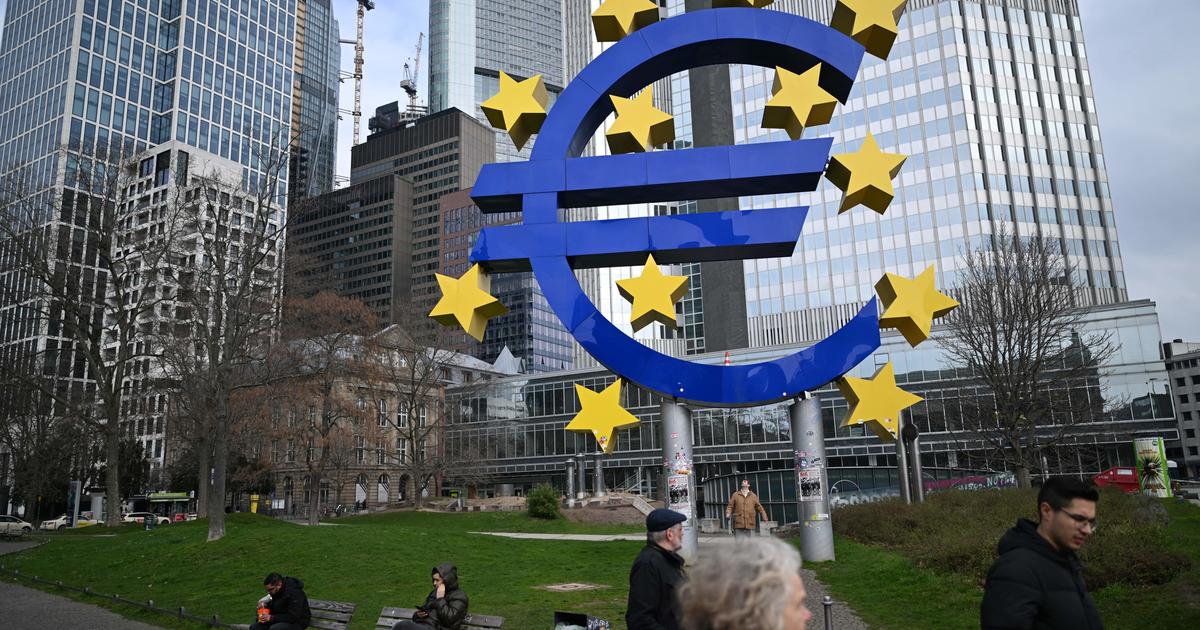Enlarge image
Deutsche Bank boss Christian Sewing: Appeal to the ECB
Photo: Sepp Spiegl / imago images/sepp spiegl
In view of the flight and fighting in Ukraine, most people are probably primarily concerned with whether the war will continue to escalate.
The economic consequences, at least in Europe, are already being felt.
The CEO of Deutsche Bank and President of the German Banking Association, Christian Sewing, expects an additional surge in prices and higher inflation rates.
»Prices will certainly continue to rise, especially for energy and raw materials.
We are currently expecting an inflation rate of around five percent for Germany this year," said Sewing of the "Bild" newspaper.
How much inflation rises will depend heavily on how the war develops.
The German Economic Institute (IW) announced last week that, according to model simulations, annual inflation could even climb to up to 6.1 percent.
At the gas station, people in Germany are already feeling the effects of the war: fuel prices in Germany have climbed to record highs in the past few days.
The Federal Statistical Office announced how consumer prices in Germany developed in February in an initial estimate this Tuesday afternoon.
In January, consumer prices rose by 4.9 percent compared to the same month last year.
In December 2021, the annual inflation rate was 5.3 percent.
Higher inflation weakens the purchasing power of consumers because they can then buy less for one euro than before.
Sewing appeals to ECB
Deutsche Bank boss Sewing again called on the European Central Bank (ECB) to reverse interest rate policy.
In view of the price development, the exit from the negative interest rate policy is still necessary - despite the crisis.
»The ECB has numerous other instruments in addition to the key interest rate to react specifically to possible tensions on the financial markets.
For example, through special programs to buy securities that should be limited in time," said the Deutsche Bank boss.
Economic expert Veronika Grimm also expects the Ukraine war to have a negative impact on growth in Germany.
"As a result of the crisis, the economy will cloud over in the short term, for example due to an intensification of the supply chain problem, persistently high energy prices or reactions on the financial markets to the sanctions," Grimm told the newspapers of the Funke media group.
"In the medium to long term, the partial decoupling of the economic areas and the diversification that is now necessary will slow down economic development, simply because it will cloud growth prospects."
Inflation will "remain high for some time," predicted Grimm, who is a member of the Advisory Council for the Assessment of Overall Economic Development.
more on the subject
Western sanctions: Is Russia now threatened with financial collapse?By Tim Bartz
Global sanctions: Russian economy threatened to collapse by 20 percent
Consequences of sanctions for the German financial sector manageable
Deutsche Bank boss Sewing gives the all-clear on one point: After Russia's exclusion from the global bank communication system Swift, he sees little risk for German institutions.
»German banks have significantly reduced their exposure to Russia since 2014.
For our banking system as a whole, the risk is manageable.
European banks' safety buffers are higher than ever,” Sewing said.
At the same time, he stressed that Russia's Swift exclusion will not end the war in Ukraine.
"That would be the wrong expectation," Sewing said.
The point is that "aggression that violates international law and the attack on a country in the 21st century must not go unnoticed."
He assumes that "the sanctions will hit the Russian economy hard," said Sewing.
This is shown by the rapid move by the Russian central bank on Monday to double interest rates to 20 percent.
mmq/Reuters/dpa













